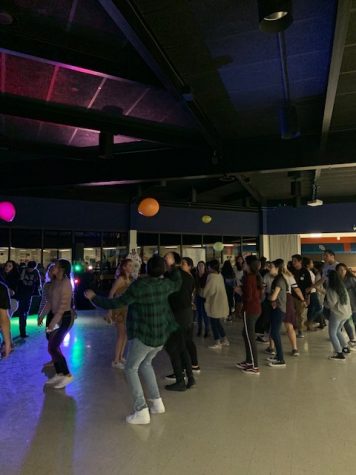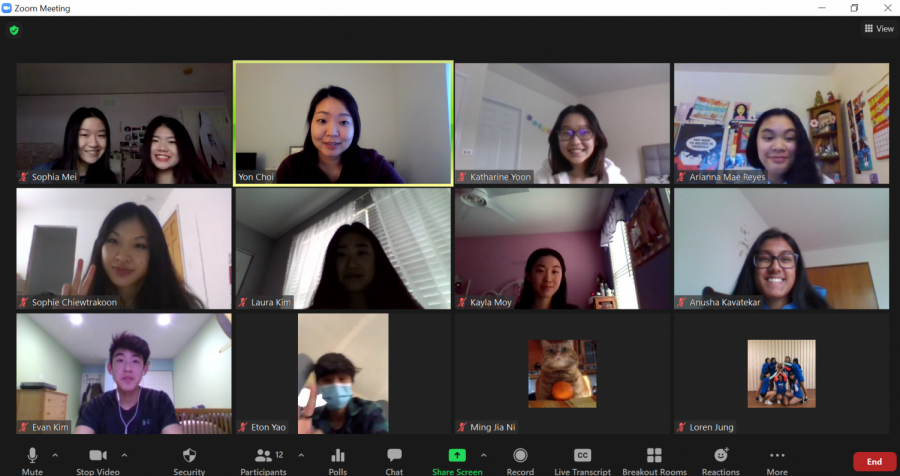Cultural clubs continue to celebrate virtually

2020 Pachangas.
During Sept. 2019, students could shimmy through the buzzing students in the cafeteria and step into the foyer to see members of Latin American Student Organization (LASO) hosting a Latinx-related questionnaire on a table dotted with colorful Calavera stickers, Hispanic trivia and manned by smiling faces.
This year, the same white table used by so many cultural clubs to educate students was folded up in a lonely closet somewhere in the school. In its wake, there were no faces to smile—no culture to share.
Although members and advisors eventually found ways to overcome their hurdles, the start of this school year was tough for cultural clubs.
Whether it be a lack of activities or a lack of comfort in the Zoom environment, one thing is clear: Nothing feels the same.
According to Sophia Mei (12), a member of Asian Student Association (ASA), cultural clubs are meant to educate anyone willing and able to celebrate various cultures. However, due to the pandemic, these goals have become harder to achieve.
“I think not a lot of people show up because of Zoom, it is kind of awkward.” Kayla Moy (12), another member of ASA, said.
This symptom of awkwardness in Zoom calls can also lead to less in-depth discussion and celebration.
“It’s definitely different because last year, we were able to share snacks in person and try different culture’s foods, but now we can’t. Over Zoom, it’s also harder to discuss than in person, especially when you talk about social issues,” Moy said.
For Orlando Alas Sandoval, a freshman, adjusting to the virtual setting of the club was a “real hard hit,” that deviated from the reality he had hoped for, but he still felt that the club provided a way for him to communicate with his friends in a more casual setting.
“We are more open in the club. In my case, I don’t normally talk that much during class, but in the club, I do talk a lot,” Sandoval said.
Many of the cultural cubs found ways to adapt in their new environment to ease the awkwardness and tension.
To familiarize members with each other, for example, some cultural clubs opted to play games together.
Alas Sandoval and Moy said they played the popular mobile game “Among Us,” in their respective clubs and members of Laso played an online version of Lotería, a Hispanic game similar to bingo.
Moy added that in ASA they also watched movies to celebrate the Chinese New Year.
Some clubs have also thought of ways to turn the situation on its head and use it as an advantage rather than a hindrance as the year went on.
Ms. Rebeca Garcia, an advisor for LASO, said that the virtual setting actually led them to communicate with other Latinx clubs, an activity which would usually require a bus to get to.
“We had the opportunity to meet with other Latinx clubs from surrounding high schools to collaborate and plan virtual ‘Pachangas’ (parties),” Ms. Garcia said. “This has allowed students to connect with other Latinx students with shared interests.
Ms. Shoshanna Candela, the advisor for Jewish Student Union (JSU), said the students decided to continue what otherwise would have happened in a physical setting through brainstorming a virtual solution.
“Our presidents organized a JSU Challah Bake where they dropped off ingredients at student’s houses, and then we prepared the challahs together in our own kitchens,” Ms. Candela said.
Alas Sandoval agreed that the importance of cultural clubs cannot be overstated. Alas moved here from El Salvador, and he used to live in Mexico, as well, and he felt that LASO gave him comfort.
“The clubs can create a way for international students like me, to go in a place and feel comfortable,” Alas Sandoval said. “It is also a good way to let the school know that we’re here, we’re present and we’re not going anywhere.”
Many more cultural clubs have found their own ways to celebrate the culture of students in a virtual setting. Check out how clubs like Indian Student Association, Black Student Union, Muslim Student Association and the Student Diversity Council are adapting at vhtsp.com.

